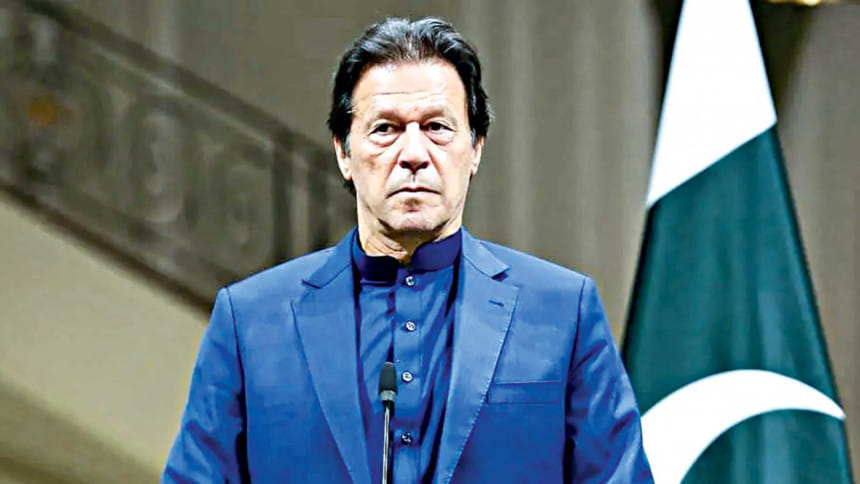Premature end to another prime minister’s tenure

Another elected government in Pakistan has failed to finish its term. Imran Khan and his Pakistan Tehreek-e Insaf (PTI) was shown the door after he lost a no-confidence vote in parliament, having lost the support of its coalition partners earlier. It was predictable after the Supreme Court of Pakistan's landmark verdict that declared Khan's move to dissolve the parliament unconstitutional and compelled him to face the vote. His acceptance of the Supreme Court verdict as well as the result of the vote has put to rest any possibility of confrontation between the various state constituents that many in Pakistan feared.
We shall deliberately refrain from commenting on the whys and wherefores of the no-confidence motion and all the foreplay that preceded it, but suffice it to say that Khan's nearly four-year tenure delivered mixed results for the Pakistani people. What we would like, though, is to focus on the important features of the ouster of the Tehreek-e-Insaf that merit reflection on.
There are two very creditable aspects of note in the entire saga. Firstly, it is noteworthy that the country's constitution has been upheld. The credit for that goes to the Supreme Court of Pakistan, which did its duty without fear or favour and played its part as the sole guardian of the constitution. It demonstrated the independence of the highest judiciary in the country. The second feature is the role the parliament played in stamping the supremacy of the legislature as the house of the people. Imran Khan lost the support of his party members, and they chose to vote against him. This is something that is not possible in most South Asian countries—at least not in Bangladesh, where Article 70 of our constitution punishes floor-crossing with expulsion from the party.
Now that an interim prime minister will take over and a fresh election is due to be held in August 2023, there are two paths forward for the erstwhile prime minister of Pakistan. One is to take the peaceful path to the next elections. The other is to take to the streets, which he has already hinted to, behooving the political culture of South Asian politics. We believe the latter will be a very ill-advised path to adopt. Given the economic crisis that Pakistan is in at the moment, the last thing it needs is a period of political unrest. It's time the political parties across the board sank their differences to retrieve the country from an economic turmoil.

 For all latest news, follow The Daily Star's Google News channel.
For all latest news, follow The Daily Star's Google News channel. 



Comments